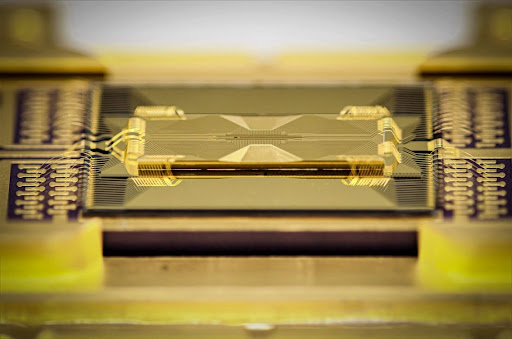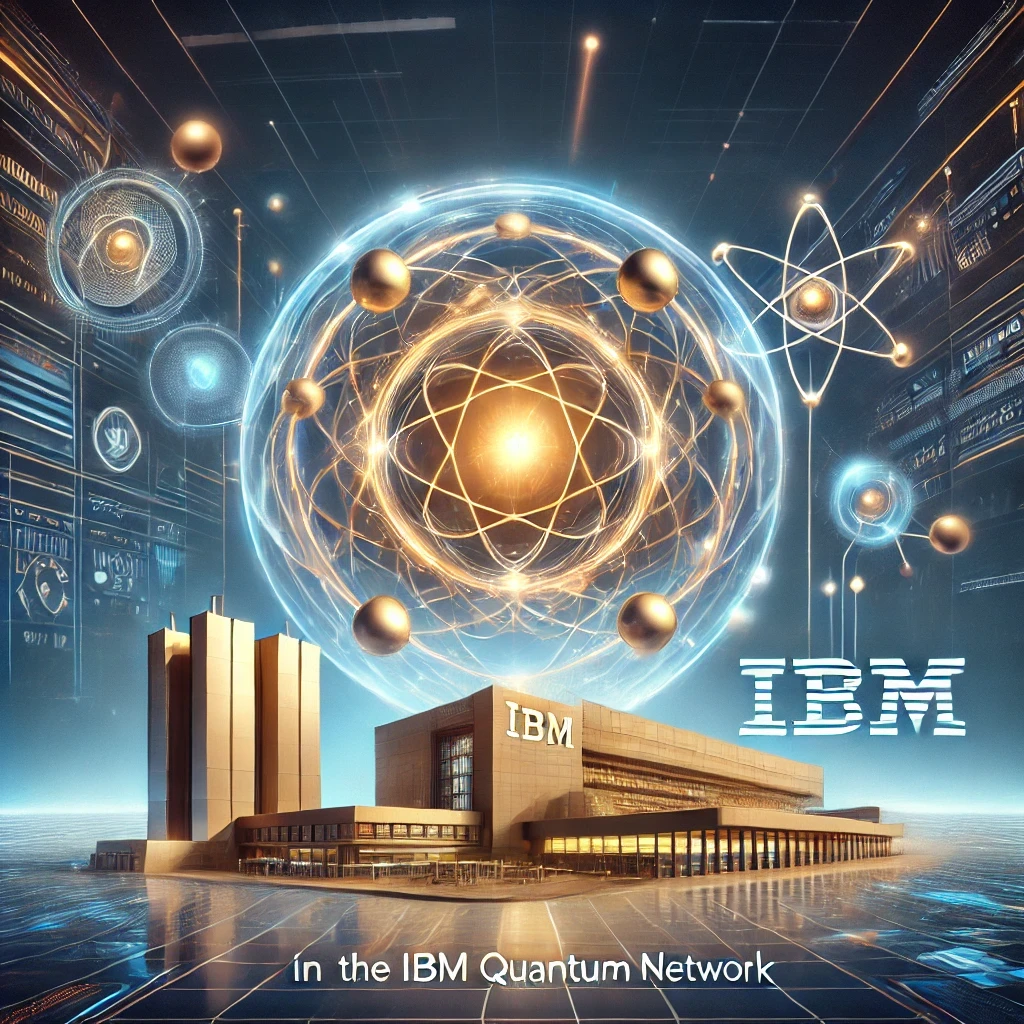TechnologyView All Blogs


Quantum Economic Impact: The Financial Ripples of the Quantum Wave
Understanding the profound economic implications of quantum technologies.

Quantum Future Predictions: Gazing into the Quantum Horizon
Exploring predictions about the trajectory of quantum technologies.

Quantum Education & Training: Preparing for the Quantum Future
The significance of education and training in the quantum domain.

Quantum Companies Powering the Quantum renaissance
Exploring companies at the forefront of quantum technological advancements.

Quantum Technologies Overview: The Dawn of a New Era
Navigating the vast landscape of quantum technologies.

Quantum Software & Tools: Powering the Quantum renaissance
Exploring the software and tools ecosystem in quantum technology.

Quantum Cybersecurity Checklist: Safeguarding the Quantum Transition
Essentials of cybersecurity in a quantum world.

Quantum Potential & Capabilities: Unraveling the Quantum renaissance
Discovering the potential and capabilities of quantum technologies.

Government-Led Quantum Initiatives: Shaping the Quantum Future
Exploring strategic quantum initiatives led by governments.

Quantum Threats: The Flip Side of the Quantum renaissance
Navigating potential risks in the quantum domain.

Quantum Networking: The Next-Gen Communication Frontier
The future of secure and efficient quantum networking.

Quantum Services: Bridging the Quantum Potential to Reality
Unveiling services in the quantum domain.

Optimize Quantum Circuits with AI-Powered Transpiler Passes
The Qiskit Transpiler Service beta release is now available on the IBM Quantum Premium Plan, providing users with AI and IBM cloud resources to speed up transpilation tasks.


Quantum Circuits Inc. Quietly Raises $33.5 Million
Quantum Circuits Inc. raised a $33.5 million extended Series C from major venture capital groups, including Sequoia Capital Partners. The funds will likely be used to expand the team and provide additional space in New Haven, as the company transitions from building quantum computers to finding customers.

AI’s Carbon Footprint is Bigger Than You Think
This article sheds light on how quantum technology and quantum computing can dramatically reduce the carbon footprint of AI and data centers, providing innovative solutions where the traditional approaches fall short. While the original article highlights concerns, it overlooks the groundbreaking potential of quantum advancements that can lead the way in sustainable AI development.

IBM wants to build a 100,000-qubit quantum computer
IBM aims to construct a 100,000-qubit quantum computer within the next decade, marking a significant leap from their current 433-qubit system. This ambitious project will involve partnerships with the University of Tokyo and the University of Chicago.

Quantum capital of the world: Emerging field that could solve ‘unsolvable’ problems
Illinois, under Gov. Pritzker's leadership, is positioning itself as the quantum capital of the world with significant investments in quantum technology. This initiative aims to address complex problems through quantum computing.

Quantum Working Groups Push for Near-Term Use Cases
Dive into the collaborative efforts of IBM's Quantum Working Groups as they aim to bring quantum computing closer to real-world applications. These groups focus on healthcare, materials science, high-energy physics, optimization, and sustainability, seeking to leverage quantum algorithms for tangible benefits.

Colorado and Illinois Set Their Sights on Becoming the Nations Quantum Hub
Colorado and Illinois are fiercely competing to secure a significant portion of federal funds under the Chips Act to become the leading quantum computing hubs in the United States. Both states have ambitious plans to foster innovation, attract quantum companies, and build a skilled workforce in the burgeoning field of quantum computing.

Intel Progresses Toward Practical Quantum Computing
Intel has made significant advancements toward developing practical quantum computing by perfecting the scalability of silicon spin-based quantum processors. This progress could pave the way for fault-tolerant quantum computers, which are essential for real-world applications.

U.S. Commerce Department Imposes Strict Export Controls On Chinese Quantum Leader QuantumCTek
In a significant move to safeguard national security, the U.S. Commerce Department has imposed strict export controls on QuantumCTek, a leading Chinese quantum communication technology company, amid concerns over potential military misuse of advanced technologies.

Un-jammable quantum tech takes flight to boost UKs resilience
UK pioneers un-jammable quantum navigation technology with a successful commercial flight test, marking a major step forward in enhancing national and global transport system resilience against GPS jamming and spoofing threats.
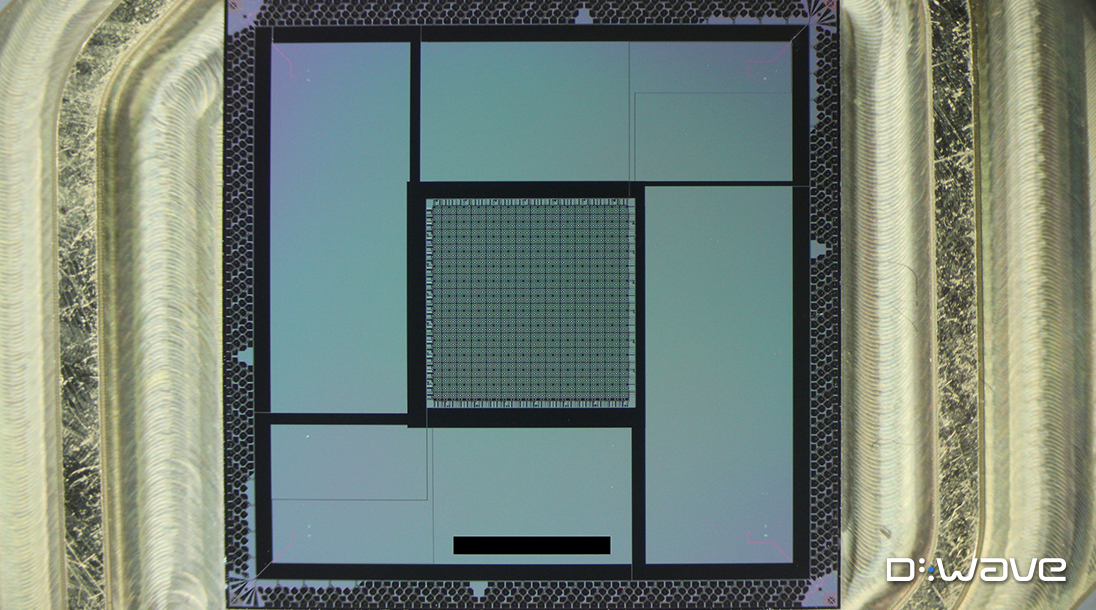
D-Wave and the University of Southern California Renew Multiyear Agreement to Advance Annealing Quantum Computing Research and Adoption
D-Wave and USC reaffirm their commitment to advancing quantum computing technology by renewing their partnership to house the Advantage system, accelerating research and practical applications in AI, logistics, and more.

Quantum physicists designing rival to Sat Nav that cant be jammed by Russia
Amidst rising concerns over GPS vulnerabilities, UK scientists are pioneering a quantum-based navigation system immune to jamming efforts, notably from Russia. This groundbreaking initiative aims to enhance navigational accuracy and security for critical applications in aviation and beyond.

Machine Learning Uncovers Sperm Whale 'Alphabet,' Providing Insight into Cetacean Communication
Researchers at MIT CSAIL and Project CETI have discovered a sperm whale 'alphabet' using machine learning technologies. The study, titled 'Contextual and Combinatorial Structure in Sperm Whale Vocalizations,' points to key breakthroughs in understanding cetacean communication by analyzing sperm whale codas in context.
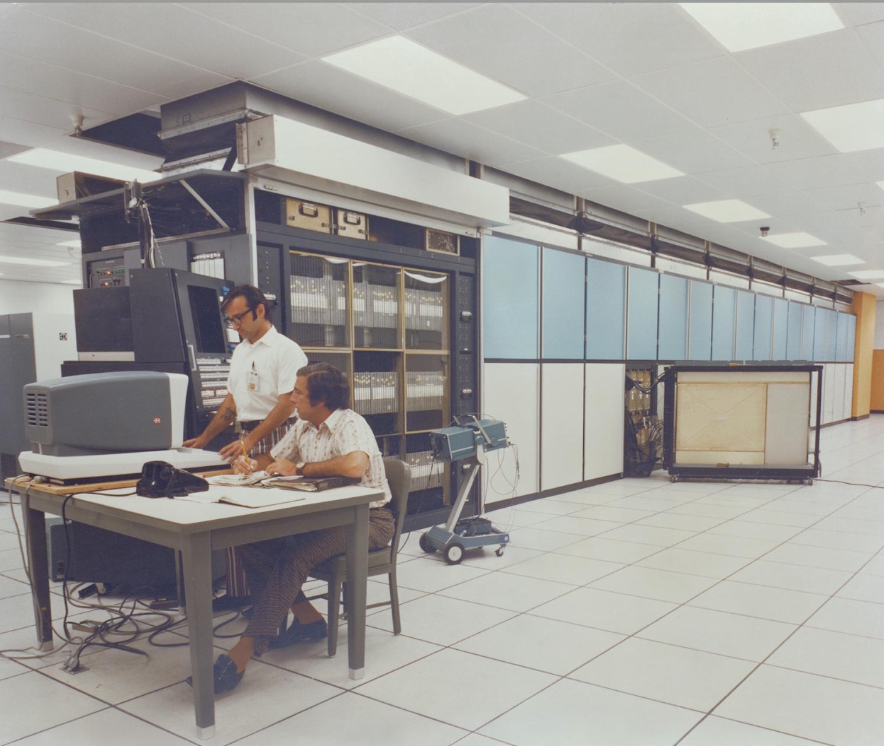

Protecting governments against quantum computing attacks
Toshiba Quantum Key Distribution (QKD) offers a quantum-safe solution for the public sector, ensuring the protection of sensitive national data against quantum computing attacks. Using principles of quantum physics, QKD generates keys that result in impenetrable data encryption, making it a crucial technology for maintaining data sovereignty in an era of rapidly advancing quantum computing capabilities.

Quantum Computing: A Potential Solution to Baltimore's Traffic Woes Following Key Bridge Collapse
In the wake of the devastating Francis Scott Key Bridge collapse, Baltimore faces severe traffic congestion. Experts suggest that quantum computing could help optimize traffic flow and ease the burden on commuters and businesses, with both the government and private sector exploring this cutting-edge technology.

Quantum-Powered Logistics Management: Transforming Supply Chain Optimization
Discover how quantum computing is renaissanceizing logistics management, enabling companies to tackle complex optimization problems, cut operating costs, and enhance efficiency in today's competitive global marketplace. D-Wave's e-book explores real-world success stories and the unique advantages of quantum computing in supply chain optimization.

Pritzker 2019s $20 Billion Bet: Illinois to Become Quantum Computing Hub with PsiQuantums Industrial-Scale Project
Illinois Governor J.B. Pritzker is championing a $20 billion initiative to create a 150-acre quantum computing campus in Chicago, in partnership with PsiQuantum. This project aims to establish Illinois as a quantum computing hub, potentially renaissanceizing sectors from healthcare to climate science.

QED-C Showcases Quantum Tech Innovations on Capitol Hill, Boosting US Global Competitiveness
The Quantum Economic Development Consortium (QED-C) hosted its inaugural Quantum Technology Showcase on Capitol Hill, featuring 22 member companies demonstrating their latest quantum technologies. This event was aimed at enhancing U.S. competitiveness and was supported by the U.S. Senate Committee on Commerce, Science, and Transportation.

Drug design on quantum computers
This article explores the promising application of quantum computers in drug design, highlighting the potential for significant advancements in quantum chemical calculations critical for computational drug discovery.

Ushering in the Thermodynamic Future
Extropic is building a full-stack hardware platform to harness matter's natural fluctuations as a computational resource for Generative AI. This innovative approach aims to extend hardware scaling beyond digital computing limits, enabling much faster and energy-efficient AI accelerators.

The UKs space economy soars to newer heights, propelled by growing government support for emerging technologies like quantum computing.
The UK's space economy is experiencing accelerated growth due to increasing government support for emerging technologies, including quantum computing. This growth is evidenced by ventures like Space Forge, which develops novel manufacturing processes in space, and Eutelsat Group, a leading satellite operator.

ICOSA And NEC Present Quantum-Inspired Solution For Financial Markets
ICOSA and NEC have developed Vector Annealing (VA), a quantum-inspired computing method that significantly accelerates solution finding in financial portfolio optimization, leveraging Markowitzs Modern Portfolio Theory for enhanced performance over traditional methods.

ORNL-Supported Research Team Enlists Quantinuum Quantum Computer To Make Real Progress On Quantum Simulation
A research team supported by Oak Ridge National Laboratory (ORNL) has utilized Quantinuums H1-1 quantum computer to simulate complex quantum states, potentially surpassing classical computing capabilities with 70 qubits. This advancement marks a significant step in quantum computing, targeting practical applications in modeling complex systems.

Quantum technology sees record investments, progress on talent gap
Investors buoy established quantum start-ups as technological progress continues, though at a slower pace, and more academic institutions offer quantum programs. This analysis highlights the industrys evolution and the narrowing talent gap.

Five lessons from AI on closing quantums talent gap before its too late
This article outlines five critical lessons learned from AI talent strategies that can be applied to address the quantum technology talent gap. It highlights the need for clear talent definitions, investment in translators, creation of diverse pathways, building technology literacy, and developing talent strategies to ensure a robust quantum workforce.

First 'thermodynamic computer' uses random noise to calculate
Discover how a prototype 'thermodynamic computer' uses the inherent random noise of the physical world to perform calculations, challenging the traditional computing paradigm and potentially renaissanceizing efficiency in artificial intelligence applications.

IBM to Acquire HashiCorp, Inc. Creating a Comprehensive End-to-End Hybrid Cloud Platform
IBM announces a significant acquisition of HashiCorp, Inc. for $6.4 billion, enhancing its hybrid cloud platform capabilities and solidifying its position in the multi-cloud market. This move is set to create synergies across IBM's strategic growth areas including Red Hat, Watsonx, and data security.

European Commission To Invest 112 Million In AI And Quantum Research And Innovation
The European Commission is set to infuse 112 million into research and innovation across artificial intelligence (AI) and quantum technologies. This funding, part of the Horizon Europes 2023-2024 work programme, aims to advance Europe's competitiveness in these critical high-tech areas.

Early quantum computing investors see benefits
Explore the pioneering stages of quantum computing with insights into its potential to renaissanceize technology, from cracking online encryption to modeling new molecules. This Financial Times article provides an overview of current developments and early applications of quantum computing technology in various sectors.

Energy Dept joins industry partners in space for quantum technology
The Energy Department Quantum and Space Collaboration project aims to harness cutting-edge quantum technologies for pivotal advancements in space. This initiative includes a focus on quantum computing, quantum sensing for imaging, position navigation and timing, and quantum secure communications. The project aims to leverage the unique properties of quantum technologies in the low-gravity environment of space to enhance communications, sensing, and computational capabilities.

Using quantum computing to lead the next technology renaissance
Government continues to be a catalyst, not just through R&D, but in using emerging tech to operate complex systems. Deloitte highlights the impact of quantum and quantum-hybrid solutions in solving current problems, promising significant advancements in public sector applications.

The Power of Quantum Neural Networks
Exploring the unprecedented capabilities of quantum neural networks, this article delves into how quantum computing could renaissanceize machine learning, offering advantages over classical approaches through increased model capacity and trainability.

A Tweezer Array with 6100 Highly Coherent Atomic Qubits
Explore the renaissanceary impact of a large-scale optical tweezer array on quantum computing, simulation, and metrology, featuring over 6,100 atomic qubits for unprecedented precision and scalability.

Harnessing Extropic AI for Groundbreaking Advancements in Various Sectors
Delve into the transformative impact of Extropic's full-stack hardware platform on industries by leveraging natural matter fluctuations for Generative AI, promising vast improvements in speed and energy efficiency.

Quantum Computing: renaissanceizing the Construction Industry
Discover how quantum computing is transforming the construction industry by enabling rapid work, optimizing processes, and improving quality.

Building a serverless application on Google Cloud to accelerate deployment time with reduced cost and complexity | by McKinsey Digital | McKinsey Digital Insights | Feb, 2024 | Medium
By Alex Dequevedo Senior DevOps Engineer I, Maksood Mohiuddin Senior Cloud Engineer II, Thomas Neff Senior DevOps Engineer I, and Marco Marulli Principal Lead II Creating a modern, three-tier application that is for all levels of developers emphasize the architecture's dual ability to offer immense power while remaining easily scalable within a free-tier framework. The focus is on building a scalable architecture that optimizes deployment times and minimizes costs and complexity, making it an invaluable resource for developers seeking efficient cloud solutions.


Q-CTRL Partners with USGS to Pioneer Quantum Sensing and Computing Applications
LOS ANGELES, January 16, 2024 - In a significant advancement for geophysics with resource exploration impacts, Q-CTRL, a global leader in developing useful quantum technologies through quantum control infrastructure software, has entered a pioneering partnership with the United States Geological Survey (USGS) to explore potential quantum computing and sensing applications for geological sciences.

New Protocol Kills Dead Air for Quantum Communication The technique can boost transmission rates and improve security
Quantum communication transmission rates have long been limited by the dead time inherent to the single-photon detectors used in the field. Now, researchers at LG Electronics in South Korea have unveiled a new protocol that promises to improve transmission rates, as well as heighten transmission security.

Rescale, IonQ Launch Partnership To Accelerate Hybrid Quantum Computing
PRESS RELEASE Following the 2024 Annual Meeting of the World Economic Forum in Davos, Rescale, the leader in high performance computing (HPC) built for the cloud to accelerate engineering innovation and scientific discovery, announced it is teaming with quantum computing leader IonQ to merge the raw processing power of accelerated cloud computing with the unique problem-solving potential of quantum computing. This partnership forges a new path to tackle the most intricate challenges facing product development, healthcare, life sciences, financial services, materials research, logistics optimization, and national research labs.

TQI Exclusive: Photonics Illuminating Quantum Technology: Trends, Challenges And Opportunities
There is a very good chance you are thinking of the gold chandelier often found in a large dilution refrigerator that quantum computing players like IBM and Google use to cool and operate a superconducting qubit. However, there is one core technology that is often overlooked when we talk about quantum computers And thats photonics. Dr. Bob Sutor who spent more than two decades at IBM Research in New York working and leading IBMs efforts in quantum computing knows the large cyrostats very well. Currently Dr. Sutor is the vice president and chief quantum advocate at Infleqtion where at an event he stated:

Tomorrows Quantum Computers Threaten Todays Secrets. Heres How to Protect Them
Digital security experts around the world have their eyes fixed on the Y2Q Years to Quantum clock. It ticks down the time until the projected date when a quantum computer will be able to break an essential form of modern cryptography. Called public-key cryptography because of its ingenious method of sharing secret codes in public, it keeps your credit card number safe when you shop online and ensures that your phone's software update is coming from the phone company and not a hacker. Whistleblowers use it to contact journalists, and businesses use it to send confidential files.

Quantum promises a bright future for the pharma industry
Quantum computing technology continues to advance closer to an everyday reality. While the potential applications of quantum in certain sectors are more speculative, the pharmaceutical industry is poised to be transformed by quantum technology.This sector is likely to be the fastest to unlock the benefits of quantum computing, once the technology is fully realized. But how ready are companies in this sector for this renaissance, and what changes can we expect?

Artificial Intelligence, Quantum Computing, and Space are 3 Tech areas to Watch in 2024
There will be a paradigm shift in quantum research, learning, and prediction in society that expands in 2024. A new data era known as quantum computing is beginning to emerge as we move past classical computing. Quantum computing is expected to change the field of data analytics and artificial intelligence, propelling humanity forward faster than ever before. The speed and power of quantum computing will enable us to address some of the most difficult problems facing humanity. Every month, quantum computing becomes closer and it is being used in practical ways.

Demystifying Quantum Computing: A Laymans Guide to the Future of Technology
Potential Impact on Technology: Now, lets go into the crystal ball and see how quantum computing could transform our technological world. The possibilities are astounding, ranging from supercharging sophisticated simulations to transforming cryptography. Have a clear picture of the potential discoveries that could radically alter the way we compute and analyze data.

Framework from MIT can help businesses anticipate when Quantum Computing might be useful
McKinsey estimates that 5,000 quantum computers will be operational by 2030, but that the hardware and software required to handle the most complex problems will not be available until 2035 or later. However, organizations must begin planning now for how they will use technology to solve real-world business problems. According to a November 2022 report, some companies expect to invest more than $15 million per year in quantum computing. A group of MIT researchers, in partnership with Accenture, has developed a framework to help tech-savvy executives start to evaluate the potential of quantum computing for problem-solving at their companies.

Google wants to solve tricky physics problems with quantum computers
Researchers at Google have created an algorithm that can translate complex physical problems into the language of quantum mechanics, which could make quantum computers able to tackle more tasks.
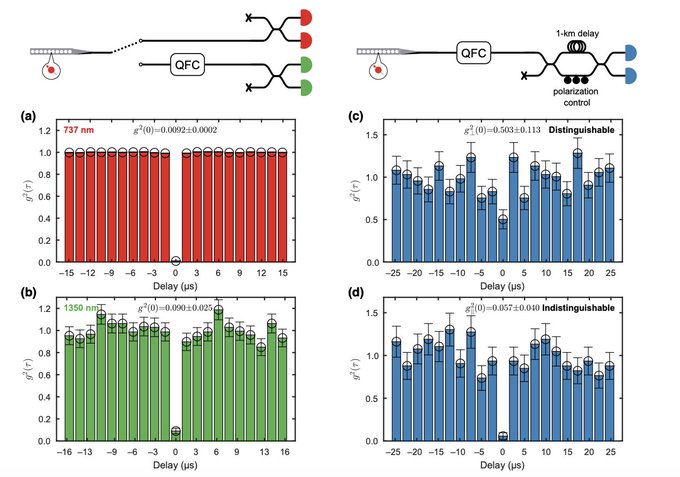
Telecom Networking with a Diamond Quantum Memory
The ability to transduce single-photon quantum states between visible and telecom wavelengths with high fidelity has implications across quantum information science applications. Single telecom photons are an important resource for photonic quantum computing; replacing current resource state generators with single telecom photon sources would improve processing efficiency and reduce errors from multiphoton events

Quantum computing is taking on its biggest challenge: noise
For a while researchers thought theyd have to make do with noisy, error-prone systems, at least in the near term. Thats starting to change.
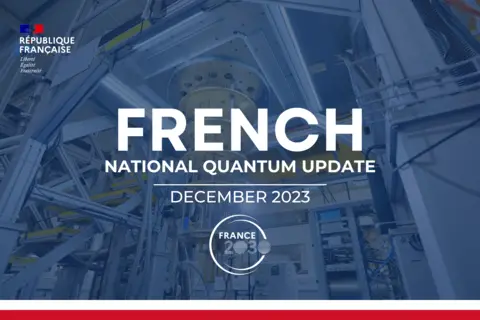
French National Quantum Report December 2023
Its been an eventful year for Frances quantum experts and enthusiasts. We have seen French scientists significantly advance research that is bringing the quantum era closer and closer. French entrepreneurs have built businesses that are in global leadership positions for quantum tech.
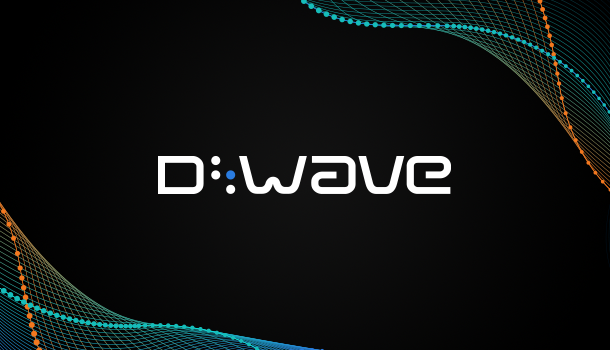
D-Wave Stands Ready To Support New U.S. Law Creating Pilot Program On Near-Term Quantum Computing Applications
The pilot program aims to build and mature demonstrations, proof of concepts (POCs), and pilots using all viable quantum computing systems ensuring that the U.S. Defense department is using the best available technology to achieve mission objectives. D-Wave has already developed demos, POCs, and applications for other governments and businesses around the world to solve optimization challenges and has the technology that is necessary to begin working with the U.S
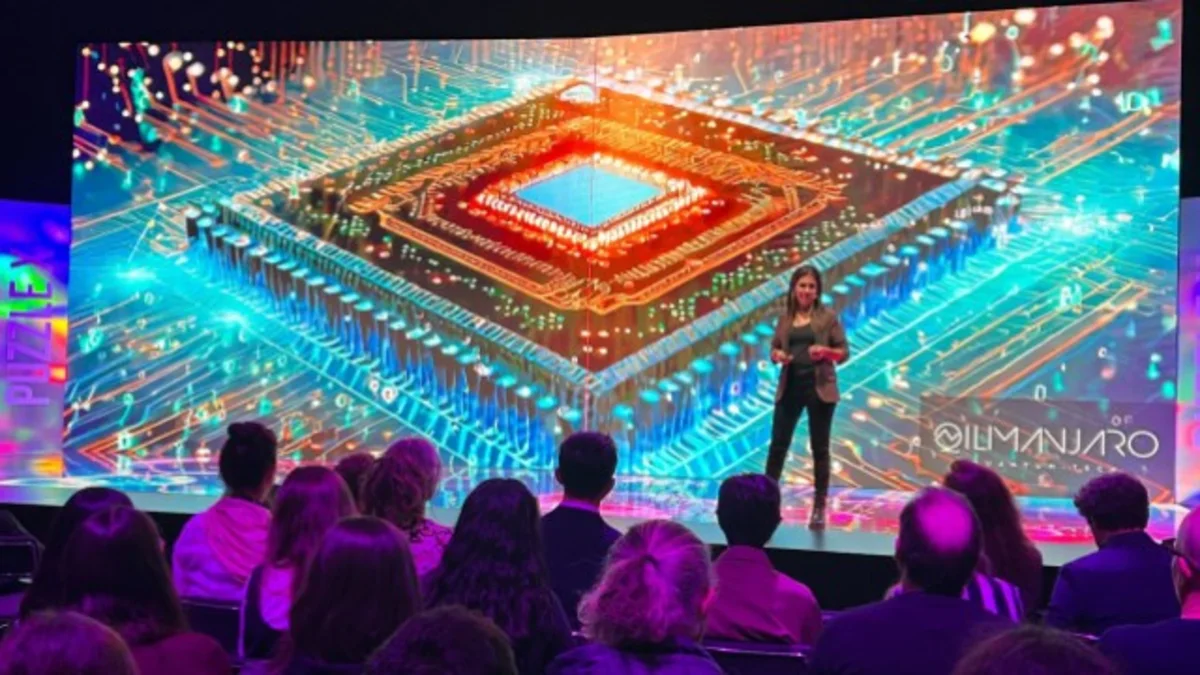

Imagining the Future of Quantum Computing for Space
Space is one of the sectors that could benefit from experimenting with and adopting cutting-edge quantum technologies. This article explores the applications of quantum technologies for space.

2024 will be the year when quantum computing becomes an increasingly tangible and accessible technology
See OQC CTO Simon Phillips prediction on what to expect for #Quantum in 2024, in UKTN's latest article:

Last week we announced that our performance-management software is integrated with IBM Quantum services. Now, you can use this option to get maximum value from 127-qubit devices!
Building on last weeks exciting announcement, were thrilled to announce that Q-CTRLs performance management is now available for you to use on the 127-qubit IBM Brisbane processor through the IBM Quantum Pay-As-You-Go plan. By expanding to larger devices, you can build utility-scale applications and push the limits of what quantum computers can do, as we usher in the era of quantum utility.
Lots of exciting news about neutral atom QCs today! Unsure what these systems are? We've got you covered. Check out our demo from earlier this year
In the last few years, a new quantum technology has gained the attention of the quantum computing community. Thanks to recent developments in optical-tweezer technology, neutral atoms can be used as robust and versatile qubits. In 2022, a collaboration between QuEra and various academic institutions produced a neutral-atom device with a whopping 256 qubits! It is no surprise that this family of devices has gained traction in the private sector, with startups such as Pasqal, QuEra, and Atom Computing suddenly finding themselves in the headlines.
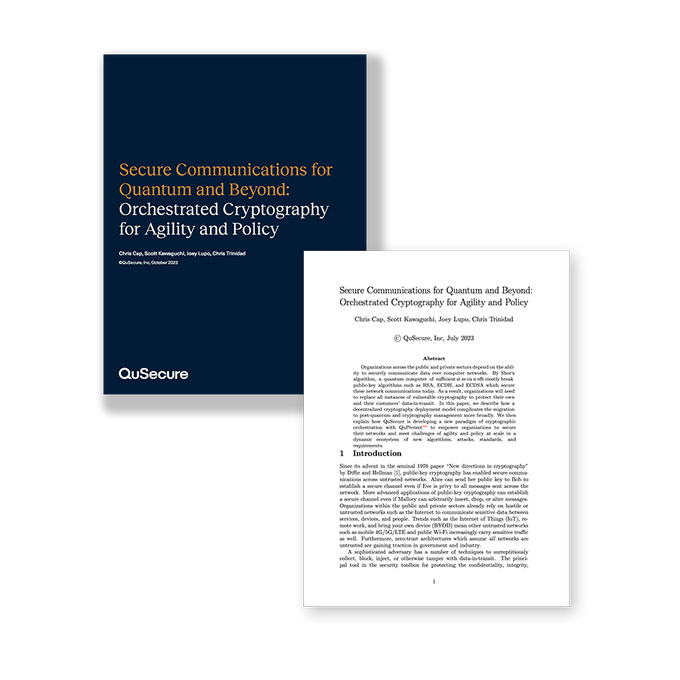
QuSecure Secure Communications for Quantum and Beyond
We are thrilled to officially launch our QuProtect Cryptographic Agility white paper - Discover the inner workings of our unified, software-based solution that provides #quantum protection for critical data anywhere it travels.

IBM's new Condor quantum computer
IBM's new Condor quantum computer is only the second ever to have more than 1000 qubits

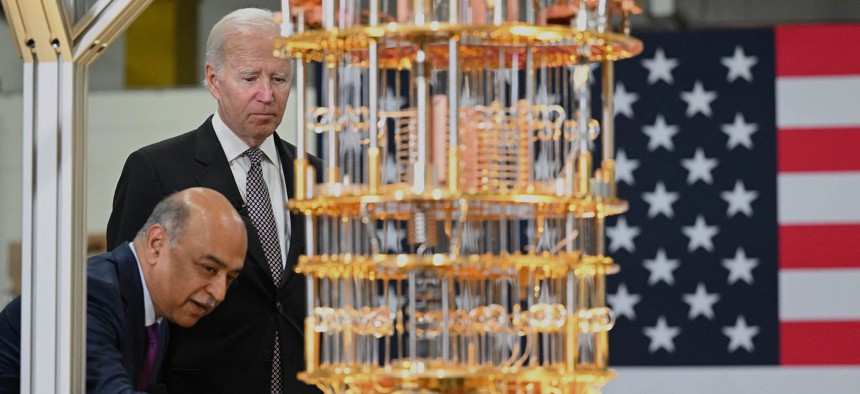
DoD offices within the Navy and Air Force are recognizing the importance of post-quantum cryptography as mission critical
DoD offices within the Navy and Air Force are recognizing the importance of post-quantum cryptography as mission critical as they look to both safeguard systems and harness the benefits of quantum computing.
60 Minutes Quantum Computing
Google, IBM make strides toward quantum computers that may renaissanceize problem solving

DoD Recognizes Top Technology, Cyber Performers
The Defense Department's chief information officer, John Sherman, today recognized more than a dozen individuals and teams who contributed in exceptional ways to the advancement of the DOD's information technology goals during 2023.

Infleqtion Launches Oqtant, the Worlds First Quantum Matter Service to Accelerate the Transition to the Quantum Era
Infleqtion, the worlds leading quantum information company, proudly announces the launch of Oqtant, the worlds first quantum innovation platform as a service that provides groundbreaking access to quantum matter for researchers, innovators, and students working on next-generation quantum applications. Oqtant will be used to build more powerful and versatile solutions for new and better sensors, atomtronic circuits, and signal processing, providing the next leap in technology innovation. With access to quantum matter typically out of reach to many, Oqtant will fundamentally democratize quantum discovery and invention. Oqtant provides the core capabilities to create and manipulate matter, anywhere, anytime, by anyone with internet access.
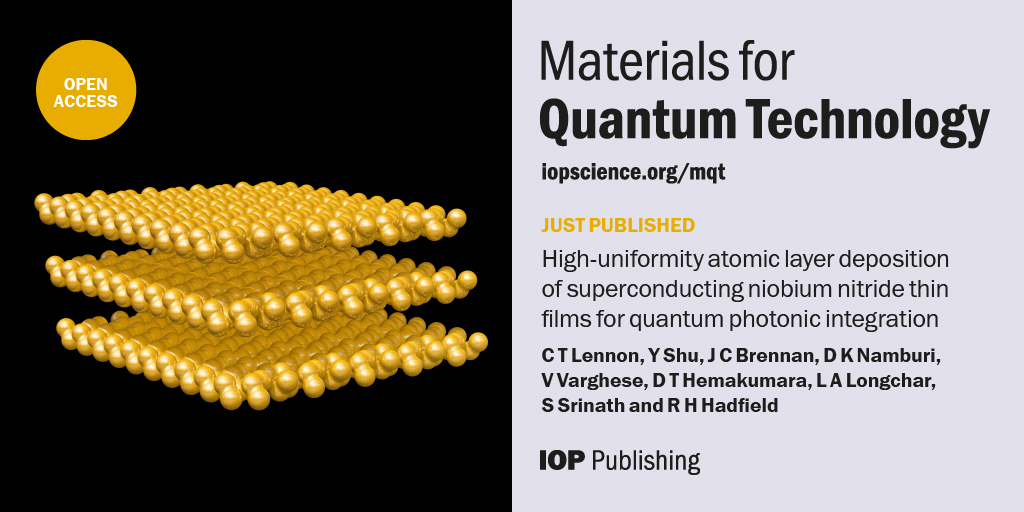
Materials for Quantum Technologies
New paper alert! High-uniformity atomic layer deposition of superconducting niobium nitride thin films for quantum photonic integration.

The Quantum Era Is Arriving, And It Will Be Transformational !
some aspects of quantum technologies are on the horizon, and we should be prepared to invest ensure that quantum capabilities for economic prosperity and national security are developed accordingly.

Quantum Technologies & Cybersecurity: The Urgent Call to Safeguard Our Digital Realm
A deep dive into the looming cybersecurity threats posed by quantum technologies.

Quantum Cybersecurity: The Future of Secure Communication
The significance of Quantum Cybersecurity in the era of quantum computers.
